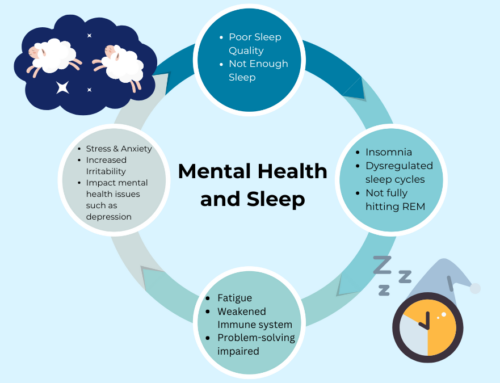Panic Attacks can strike at any moment and make us feel like we don’t have control over our own thoughts and consequently our minds as well. There are some things you can do to help quell a panic attack and we look to the experts for answers. Clinical psychologist Regina Josell, PsyD, outlines three steps you can take to bring yourself back to calm sooner.
Calming strategies for panic attacks
There’s no magic cure-all for panic attacks, but you can make them shorter and less severe. The next time you’re dealing with a panic attack, follow these steps:
Calming step 1: Have a script ready
A panic attack can fill your head with racing, negative thoughts, which can keep the panic going and make you feel worse. But you can wield a powerful weapon against them: A script of positive thoughts.
- “Write down encouraging words you can read to yourself during a panic attack,” Dr. Josell says. “Your script should answer the negative thoughts. So if you feel like you’re going to pass out, tell yourself you won’t. If you feel like you’re dying, tell yourself you won’t die from a panic attack. The words you hear are powerful, and over time, they become your truth.” Ideally, write your script when you’re feeling calm. Tuck it in your pocket or purse or type it into your smartphone notes so it’s easy to access. When you are having a panic attack you are not thinking rationally, but if you read the script that you wrote when you were not in panic mode, then you are able to combat the barrage of negative thoughts.
- If you’re in the middle of a panic attack and don’t have your script, you can fight negative thoughts on the fly. Try repeating — in your mind or out loud — phrases like, “I’m strong, and I can handle this,” or “This is only temporary, and it will pass.”
- Your script helps you deal with an attack that arises, but it’s a preventive measure, too. It can calm your fear of having another panic attack because you know you’re in control. The more confident you are that you can manage a panic attack, the less likely you are to have future attacks. A panic attack is essentially self sabotage and when you are able to take control of your emotions then it no longer has power over you.
Calming step 2: Focus on Breathing
Your breath affects your mental state, so breathing is a crucial part of stopping an attack. “During a panic attack, your breathing speeds up, a signal that your body is in fight-or-flight mode,” Dr. Josell says. “Rapid breathing sends a clear signal that you’re in danger, but slow, deep breathing helps to turn off the fight-or-flight response.”
Not sure how to slow down your breathing? Follow these steps:
- Find a quiet place to sit or lie down, if possible. But even if you can’t, deep breathing can benefit you anywhere.
- Place one hand on your belly and one hand on your chest.
- Take a slow, deep breath in through your nose, and exhale out through your mouth. Breathe at a pace that feels comfortable for you.
- Notice your hands. The hand on your belly should move as you inhale and fall back into place as you exhale. The hand on your chest should stay relatively still.
- Repeat for several minutes or until you feel calm.
As you inhale and exhale, if you are also focusing on the act of breathing your rumination is put on pause while you concentrate on this simple involuntary act.
Calming step 3: Find a distraction
Thinking about your panic attack makes it worse, but a distraction can help you get your mind off it. Your distraction should be something simple that you can do when you feel anxious.
Try these ideas:
- Call a friend who knows how to make you feel better.
- Listen to music.
- Pet your dog or cat.
- Picture yourself in a peaceful place.
- Sing or hum.
- Take a walk or go for a run.
Panic Attack Prevention: Learn Your Triggers
Panic attacks can come on suddenly and may seem like they strike out of the blue. But many times, specific triggers lead to the attack. If you can spot that trigger, you might be able to avoid a panic attack next time. It may be triggered by external stimuli but it is our mind that induces the panic attack. They say life is 10% what happens to you but 90% how you deal with it. A panic attack is an ineffectual way to deal with something that happens to us.
Learn to control or eliminate your panic attacks by practicing some or all of these calming techniques, and break free of their grip on you.
Source:
https://health.clevelandclinic.org/how-to-stop-a-panic-attack/
Related Articles
Start Living Constantly Healthy Today
Same Day Therapy with Weekend & Evening Availability







